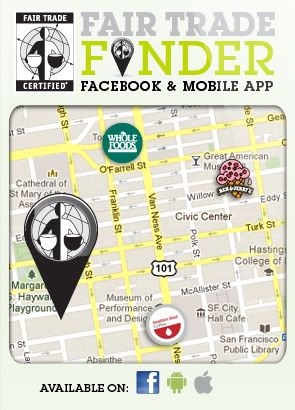
Once I landed on a website whose author bashed those who deliberately seek Certified Fair Trade products. This person sees inherent wisdom in the free market and thinks Fair Trade Certification implies there is something wrong with the market. Ten years later that article still sticks in my brain like a splinter because I think it sorely misses the point.
Fair Trade consumers are not rejecting the market - we are using it. We have decided that living wages, no forced or child labor, environmental sustainability, and transparency are market forces worthy of our consumer spending. Why are price, quality, and brand considered valid market forces but a guarantee that goods were not produced in sweatshops is something that starts with a c and ends with Gorbachev? Think about it.
And I would argue that Fair Trade participation in the market is pure because vendors do not rely on government subsidies, which is more than we can say for some too big to fail industries. Yes, living wages are set in the Fair Trade system, but consumers turn that into a market force, not governments.
Has our culture become so divided that we'd rather trade -isms than consider the substance behind another's values when they differ from our own?
-------------------------------
October is Fair Trade Month

App Source: Fair Trade USA
Fair Trade certification and membership organizations all agree on these basic Fair Trade principles:
-Long-term direct trading relationships
-Prompt payment of fair prices and wages
-No child, forced or otherwise exploited labor
-Workplace non-discrimination, gender equity and freedom of association
-Safe working conditions and reasonable work hours
-Investment in community development projects
-Environmental sustainability
-Traceability and transparency
* Source Fair World Project



